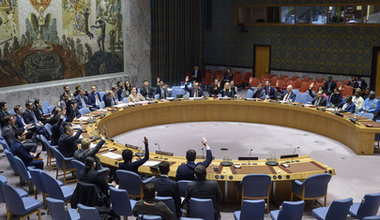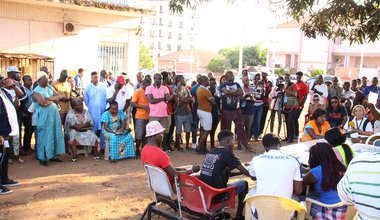Many governments have already announced measures to stimulate the financial system, safeguard small and medium-sized enterprises and protect families and workers. Other countries are studying emergency packages to try to reverse the impact of the pandemic.
News stories
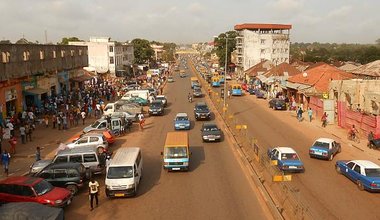
The socioeconomic impact of the new coronavirus pandemic is already being felt worldwide, including Guinea-Bissau, due to the preventive measures adopted by governments and the very limitations of the countries' production caused by the disease.

In the context of the support to the country’s response to COVID-19, which include a series of activities from strengthening the country’s health system to communication, the UN in Guinea-Bissau used resources from the Peacebuilding Fund to support the development of a fact-checking website that helps citizens of Guinea-Bissau to be informed with credible information.
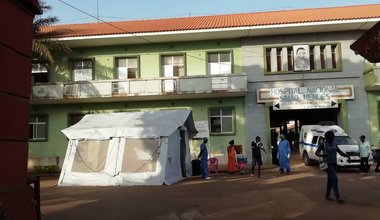
Guinea-Bissau has so far recorded eight cases of Covid-19. On March 26, the authorities decreed a state of emergency that gives legal framework to the measures that had already been taken before: suspension of all academic and religious activities, sports competitions and all activities that involve concentration of people, including funerals, closure of borders and restrictions on the movement of people and trade.
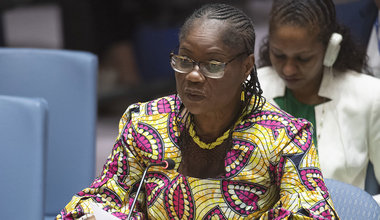
UN Photo/Eskinder Debebe
Rosine Sori-Coulibaly, Special Representative for Guinea-Bissau and Head of the United Nations Integrated Peacebuilding Office in Guinea-Bissau, briefs the Security Council meeting on the situation in Guinea-Bissau.
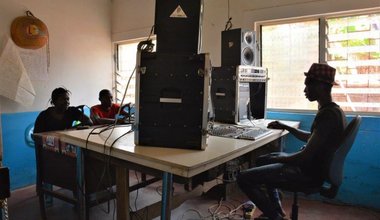
“In order to operate the radio, each of the 14 employees had to contribute 2500 CFA francs a month for electricity.

On her first visit to Bissau, in the context of a mission to several countries in the region, Rosemary di Carlo said she was happy to see that the presidential elections took place in a peaceful environment, “demonstrating the willingness of the Guinean people to exercise their civic rights, consolidate democracy and turn a new page towards political and institutional stability”.
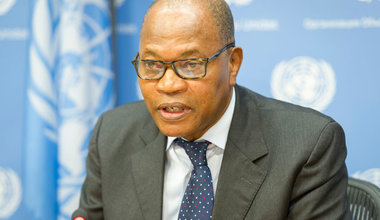
Electoral authorities announced victory of former prime minister and retired general Umaro Sissoco Embaló in the December 29 election.
 UN
UN
